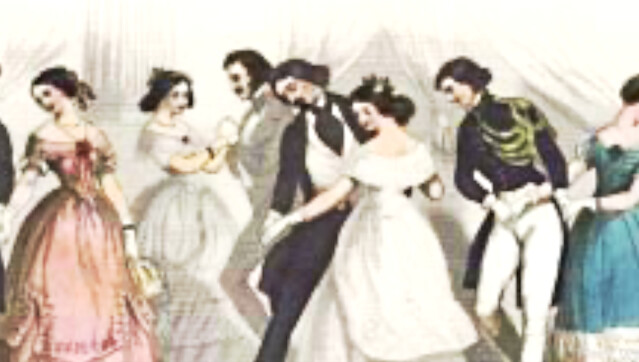Attitudes Toward Freedom And Equality
Posts on The Dawn Of Everything: Link
Posts on Pierre Bourdieu and Symbolic Violence: link
Posts trying to cope with the absurd state of political discourse: link
Posts on Freedom and Equality. link
My last post on The Dawn Of Everything ends with a pair of quotes describing the judgement of the Americans of the invading French; they make a nice introduction to this post. Next David Graeber and David Wengrow describe the reaction of the French missionaries to the way the Americans lived and thought.
The authors rely on The Jesuit Relations and Allied Documents: Travels and Explorations of the Jesuit Missionaries in New France, 1610–1791. 73 vols., Reuben Gold Thwaites, editor, 1901. This appears to be a collection of reports of a large number of missionaries, and perhaps others, of their interactions with the Americans living in New France, the area colonized by the French. It extends roughly from Newfoundland across Canada to the lands north of the Great Lakes, and south from the Great Lakes to Louisiana.
The authors focus on the Northeastern Woodland areas, the area inhabited by the Iroquois and the Wendat. The Wendat (or Huron or Wyandotte) lived north of Lake Huron, and the Iroquois were their neighbors to the South and East, as best I can tell. The two groups were mortal enemies. There were frequent wars with enslavement, torture, and human sacrifice. This aspect of their lives is not discussed. Link, link.
The Wendat were sedentary, living in longhouses, 20 to 30 families in each, behind high palisades. According to the authors, they made decisions in council meetings open to everyone. They had leaders, but their power arose from their persuasiveness, not from material possessions or skill in battle. All the men and women regarded themselves as free.
The very idea of freedom was contrary to the social structure of the French of that day. They lived under rigid hierarchies. Everyone was subservient to someone. The soldiers had a chain of command that went all the way to the King of France. The missionaries lived in a similarly hierarchy of clerics all the way to the Pope, with a side order of subservience to the King. Everyone, including the King was subservient to the Almighty through the Catholic Faith.
The Americans aggressively rejected the idea that anyone could make them do anything they didn’t want to do. As one Jesuit missionary, Le Jeune, put it in 1642, referring to the Montagnais-Naskapi who lived in Newfoundlad,
They imagine that they ought by right of birth, to enjoy the liberty of wild ass colts, rendering no homage to any one whomsoever, except when they like. They have reproached me a hundred times because we fear our Captains, while they laugh at and make sport of theirs. All the authority of their chief is in his tongue’s end; for he is powerful in so far as he is eloquent; and, even if he kills himself talking and haranguing, he will not be obeyed unless he pleases the Savages. P. 41, fn omitted.
In the same vein, the French Missionary Father Lallemant described the Wendat as the most free people on earth because they didn’t feel any compulsion to give allegiance or homage to anyone except as each chose. For example, women were assumed to control their own bodies in all respects. They had specific and important roles in community life, gendered, but apparently roughly equal, including participation in group decisions. That kind of freedom upset the missionaries. One observed:
This, without doubt, is a disposition quite contrary to the spirit of the Faith, which requires us to submit not only our wills, but our minds, our judgments, and all the sentiments of man to a power unknown to our senses, to a Law that is not of earth, and that is entirely opposed to the laws and sentiments of corrupt nature. Add to this that the laws of the Country, which to them seem most just, attack the purity of the Christian life in a thousand ways, especially as regards their marriages … . P. 43.
Besides vastly different ideas about freedom and purity, the American and French people had wildly different attitudes toward material possessions. The authors point out that the Wendat didn’t have money for exchange. The women held a form of ownership of land, and were responsible for food production. The food was distributed by women’s collectives. I assume that clothing, tools and weapons were manufactured and distributed in ways that didn’t involve money.
The Wendat did have wampum, strings of worked beads and shells, that were considered valuable, but were ceremonial, not for exchange.
Wealthy Wendat men hoarded such precious things [like wampum’] largely to be able to give them away on dramatic occasions .… Neither in the case of land and agricultural products, nor that of wampum and similar valuables, was there any way to transform access to material resources into power – at least, not the kind of power that might allow one to make others work for you, or compel them to do anything they did not wish to do. P. 43.
This too must have seemed alien to the French, for whom the desperate search for possessions was a driving force, and for whom sexual freedom was a “wicked liberty”.
Discussion
1.It looks like these Americans had generated a completely different social organization than we have today, and certainly different from the French of their day. I’ve come to think of them as apex hunter-gatherer societies.I wonder how they might have continued to evolve after contact with the Europeans under different circumstances.
2. In my series on the ideas of the philosopher Elizabeth Anderson, I describe her view of the terms freedom and equality. Index here. Here’s a quick overview taken from this paper.
There are at least three conceptions of freedom — negative, positive, and republican — and three conceptions of equality — of standing, esteem, and authority. …
…
… Sarah has negative freedom if no one interferes with her actions. She has positive freedom if she has a rich set of opportunities effectively accessible to her. She has republican freedom if she is not dominated by another person — not subject to another’s arbitrary and unaccountable will.…
… There are at least three conceptions of freedom — negative, positive, and republican — and three conceptions of equality — of standing, esteem, and authority. …
…
… Sarah has negative freedom if no one interferes with her actions. She has positive freedom if she has a rich set of opportunities effectively accessible to her. She has republican freedom if she is not dominated by another person — not subject to another’s arbitrary and unaccountable will.…
… In hierarchies of standing, agents (including the state) count the interests of superiors highly, and the interests of inferiors for little or nothing. In hierarchies of esteem, some groups monopolize esteem and stigmatize their inferiors. In hierarchies of authority, dominant agents issue arbitrary and unaccountable commands to subordinates, who must obey on pain of sanctions. . Citation omitted.
I’d say that the Americans were free from interference and domination compared to the French. I’d say that they had fewer interesting opportunities for personal projects than at least a fair number of French. The Americans seem to be more equal in standing, more equal in esteem, and free from authority compared to the French.
3. The authors make the point that among the Wendat material wealth could not be converted to political power. Pierre Bourdieu says that various forms of capital, social, economic and cultural among others, can be converted into other forms of capital, and thus into power. in our current version of capitalism rich people can use their wealth to secure political power that cements their position. Of course, we are unequal and unfree on the other forms of freedom and equality.






![[Photo: Annie Spratt via Unsplash]](https://www.emptywheel.net/wp-content/uploads/2017/08/Books_AnnieSpratt-Unsplash_mod1.jpg)
